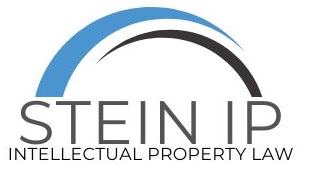- HOME
- > Blog Main Page
- > Do You Need to Prove “Willfulness” to Recover a Trademark Infringer’s Profits?
Do You Need to Prove “Willfulness” to Recover a Trademark Infringer’s Profits?
David Ward
On April 23, 2020, the U.S. Supreme Court settled a question that had previously split the different Circuit courts: are trademark owners able to recover profits from defendants, even if the defendant did not mean to infringe on the trademark?
Up until now, the Second, Eighth, Ninth, and Tenth Circuits had said no, defendant’s profits are only recoverable if the defendant intentionally (“willfully”) infringed on the trademark.1 That has now changed now that Romag Fasteners, Inc. v. Fossil, Inc. settled the question for everyone in the nation.2
Years ago, Romag Fasteners and Fossil were in a mutually fruitful agreement that allowed Fossil to use Romag’s magnetic snap fasteners on Fossil products. However, Romag discovered that the factory Fossil used for their products was using counterfeit fasteners, infringing on Romag’s registered trademark. Negotiations broke down, and of course the issue was brought to court.
The US District Court of Connecticut, within the Second Circuit, found that Fossil infringed on Romag’s trademark, but did not award defendant’s profits as damages because it was not a willful violation.3 On appeal of the damages, the Federal Circuit followed Second Circuit precedent and stated that violations of § 1125(a) of the Lanham Act had to be “willful” in order for a plaintiff to be awarded the defendant’s profits.4
Section 1125(a) of the Lanham Act essentially spells out the civil action that trademark owners can utilize to recover money when their trademark is used in a false or misleading way. However, since the jury found that Fossil did not willfully infringe on Romag’s trademark, the Federal Circuit affirmed the District Court’s judgment that barred recovery of defendant’s profits as damages.5
The relevant law for recovering profits, which is § 1117(a) of the Lanham Act, states that “a violation under section 1125(a) … of this title, or a willful violation under section 1125(c) of this title” (emphasis added) allows the recovery of defendants profits.6 As you may notice from the wording, “willful” is only required for violating section 1125(c), but Fossil was found to be infringing under section 1125(a). Nevertheless, the District Court and Federal Circuit said that Second Circuit precedent required the showing of willfulness to award the defendant’s profits.7
Justice Gorsuch and the rest of a unanimous Supreme Court disagreed.8 Seeing as the wording of the law only required showing of “willfulness” to recover profits under section 1125(c), the court refused to read the same requirement into 1125(a).9 If lawmakers had meant to make “willfulness” a requirement to recover profits for both 1125(a) and 1125(c) infringements, they would have moved the word “willfulness” to the beginning of the sentence to include both.10
The Court found that mental state of Fossil in dealing with the incident was such that it warranted awarding profits, even if it was not a strictly “willful” infringement. However, the opinion did concede that the mental state of the infringer is still an important factor to be considered when deciding whether to award a defendant’s profits, but that “willfulness” is not an absolute requirement under section 1125(a).11
While this case can be seen as somewhat straightforward from a linguistic perspective, if not a little nuanced from a legal perspective, it will undoubtedly change the landscape for trademark owners. No matter where a trademark owner brings its suit now, recovering for false or misleading use of a trademark won’t require the owner to show the defendant “willfully” infringed in order to be awarded profits. Intent will still be an important factor that courts will consider, but trademark owners now have another arrow in their quiver to seek damages for improper use of their trademarks.
[1] Jessica L. Hannah, Is Willful Infringement Required for Award of Trademark Infringer’s Profits?, Finnegan: Incontestible® Blog (January 7, 2020).
[2] See 140 S. Ct. 1492, 1497 (2020).
[3] Romag Fasteners, Inc. v. Fossil, Inc., No. 3:10CV1827(JBA), 2014 WL 3895905, at *1, *13 (D. Conn. 2014).
[4] Romag Fasteners, Inc. v. Fossil, Inc., 817 F.3d 782, 789-791 (Fed. Cir. 2016); See 15 U.S.C. § 1125(a) (2008).
[5] Romag Fasteners, Inc., 817 F.3d at 789-791.
[6] 15 U.S.C. § 1117(a) (2008).
[7] Romag Fasteners, Inc. 817 F.3d at 789-791; Romag, Inc., 2014 WL 3895905, at *1, *13.
[8] See Romag Fasteners, Inc., 140 S. Ct. at 1497.
[9] Id. at 1495-96.
[10] See id.
[11] Id. at 1497.

TAGS:
RECENT POSTS
